Last weekend when I visited Mike's garden, there was more to my visit than just taking photos of his sumacs. Mike needed some help moving some large bamboo divisions we had dug a month or so ago, and wanted to dig another one. Although he can manage it on his own, those types of projects are so much easier with a helper. As compensation for my help he offered me a division of his Arundinaria gigantea -- the "river cane" or "giant cane" bamboo that is native to the southeastern part of the US, including the southern part of Missouri.
In fact, Mike dug his plant from the Missouri "boot heel" (the southern part of the state -- take a look at a map and it will become clear why it's called this) many years ago. I don't grow this bamboo, mainly because it can often look pretty ratty -- not the nicest specimen for a garden. Mike's plant looks quite nice though, so I was happy to take a division from it. I had the perfect spot in my yard for it too (which is rare -- I usually put new divisions into pots for a year or so) so let's take a look at the planting process.
Unfortunately the spot I was looking at was not empty (I don't know if any spots in my yard are these days) as there are three small bamboos here already:
They're all doing poorly so I'll remove them.
First, a Fargesia denudata that has died:
Second a Fargesia murielae that's really struggling:
Finally a Pseudosasa viridula that is surviving but not really thriving:
It's spreading a bit, but not getting any taller:
So out they all come. The murielae will be potted up and babied:
The viridula will be divided, potted, and eventually given away to other growers on the Bambooweb forums. I'll keep one piece for myself though, just in case. It's not quite cold-hardy enough for St. Louis.
There is some shrew or vole activity back here, which is never a good sign -- they often like to munch on bamboo rhizomes:
Anyway, the plant was pretty easy to dig up -- this is the site of my old compost pile, so the soil is quite loose, although pretty dry right now:
The wandering rhizome made a nice division on its own:
I'll chop the main plant up later, so will just move it out of the way right now:
So the space is clear and ready for planting!
Here's the new plant:
Although it's pretty large, it's nowhere near as difficult to move as many of the other divisions I've gotten from Mike before . Glad for the large dolly for sure!
I love the persistent culm sheath on the new culms -- they'll really brighten up this shady spot under the trees:
Arundinaria gigantea is quite happy in shaded spots, as it often grows as an understory plant. In fact, there is a grove of this plant growing under towering trees at Shaw Nature Reserve, so I know it will do well back here. At Mike's it doesn't get much sunlight either, so I'm pretty confident it will be happy in this spot.
To plant this I just dug a shallow hole and placed the plant there. I'll mound up soil around it to plant it:
This is my favorite bamboo planting method recently, with the idea that it will be easier to rhizome prune and control its spread in a raised mound. Plus, it's less digging. The only drawback is it's harder to water a mound.
I can always expand the mound in the future if needed, but for now, this bamboo is planted!
It looks great, and I feel good about finally having a specimen of our "native" bamboo. (I qualify "native" because I don't think this bamboo never grew natively in the St. Louis area, just in the southern part of the state.)
I'm really running out of room for larger bamboos now, but I think I said that last year too.
Note: Unfortunately we had some hot days after I planted this, and I didn't water as much as I should have. Some of the culms have completely desiccated -- all of the leaves on them have dried up. The plant looks much worse right now than it does in these photos, so I'm not going to show it to you. I know the plant will be fine, but it still upsets me that I let this happen. Stupid heatwave and drought.
.


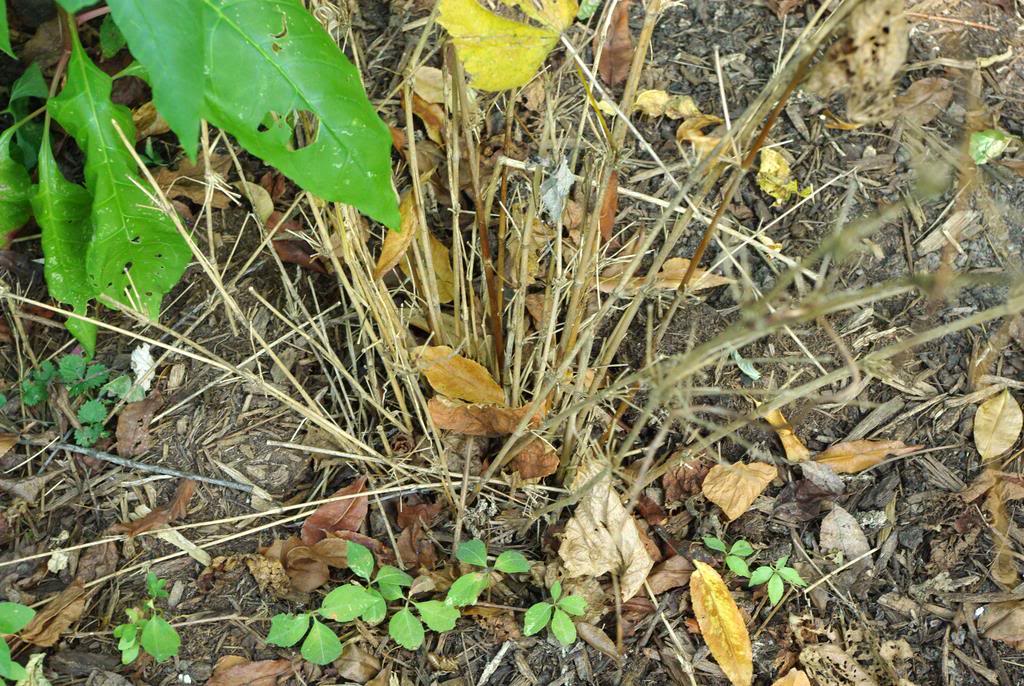
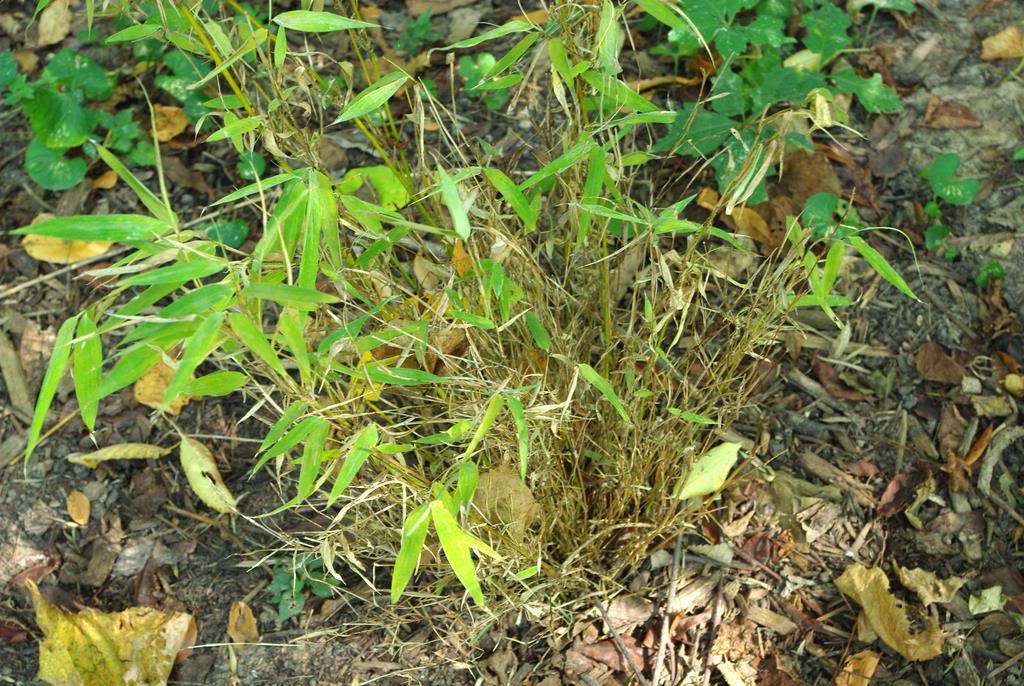

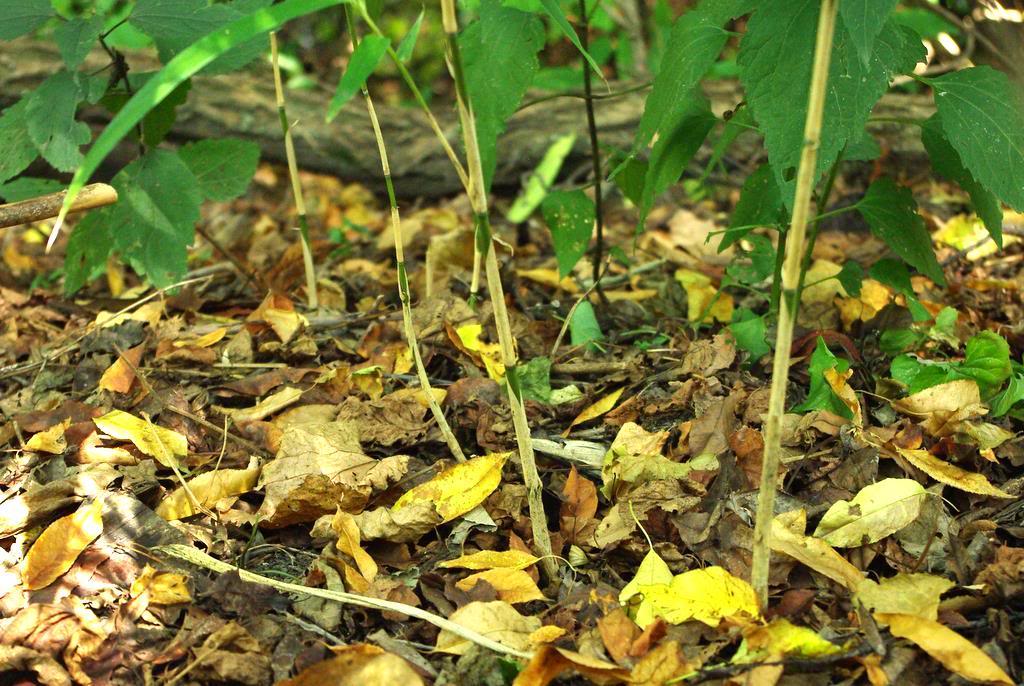

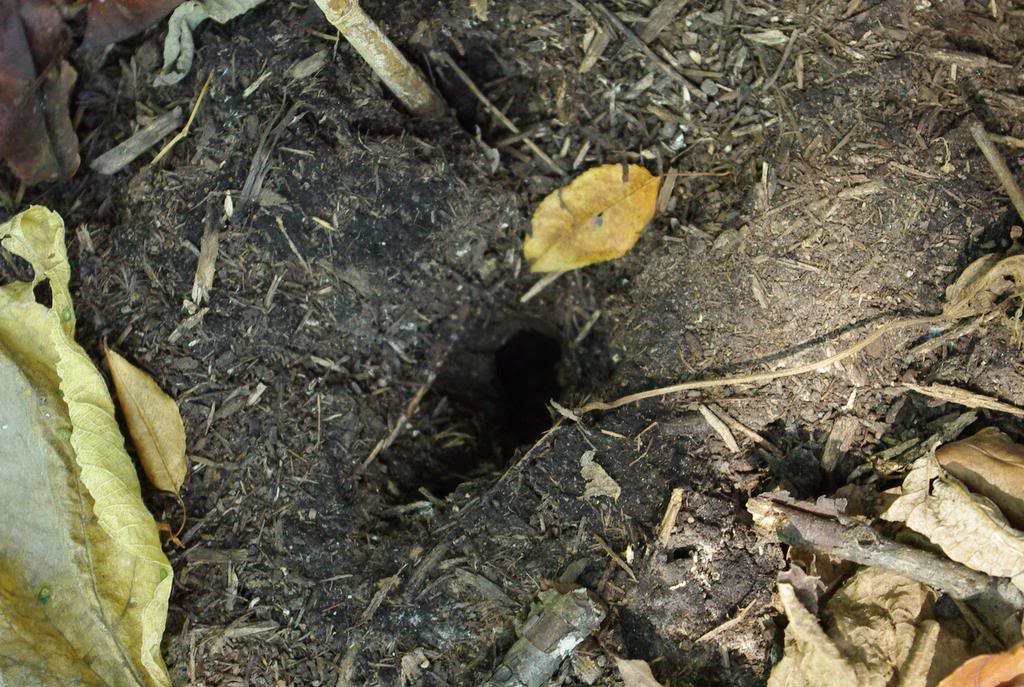
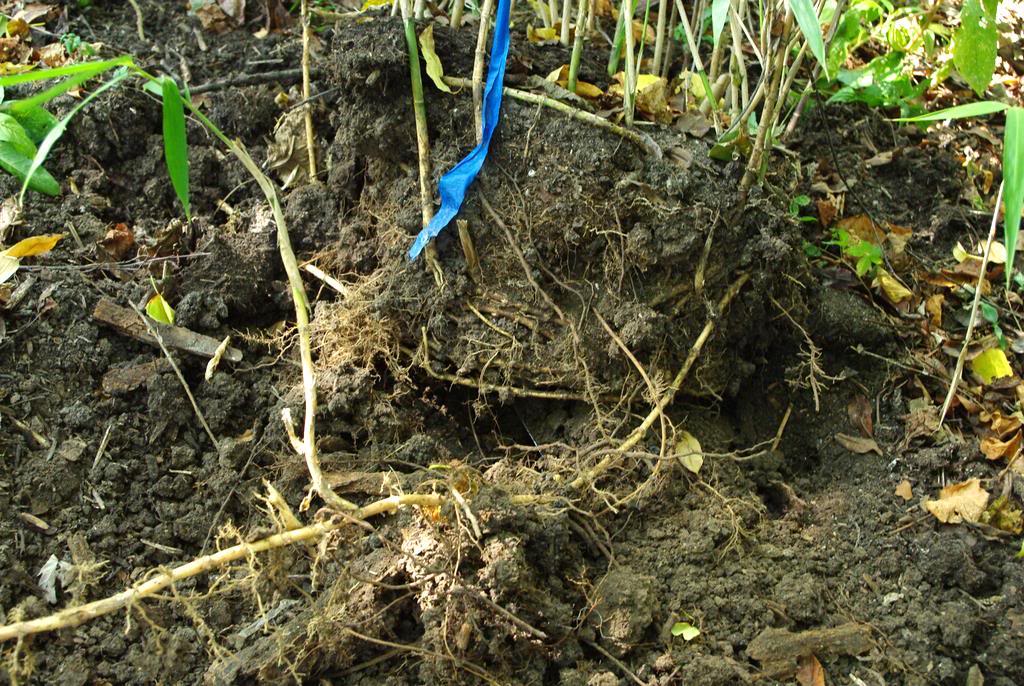
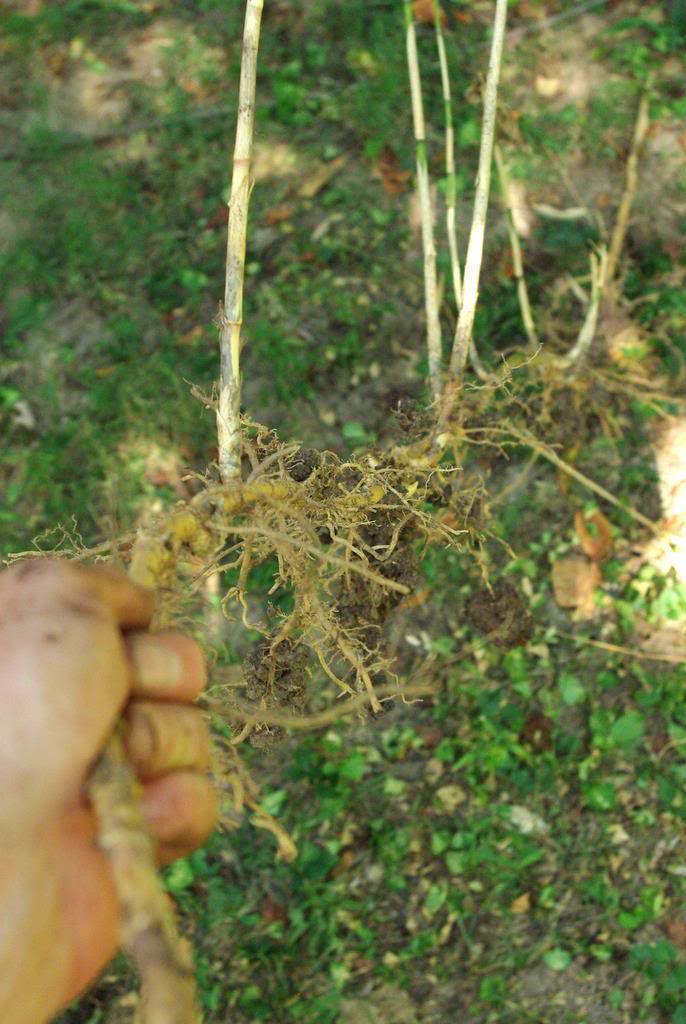
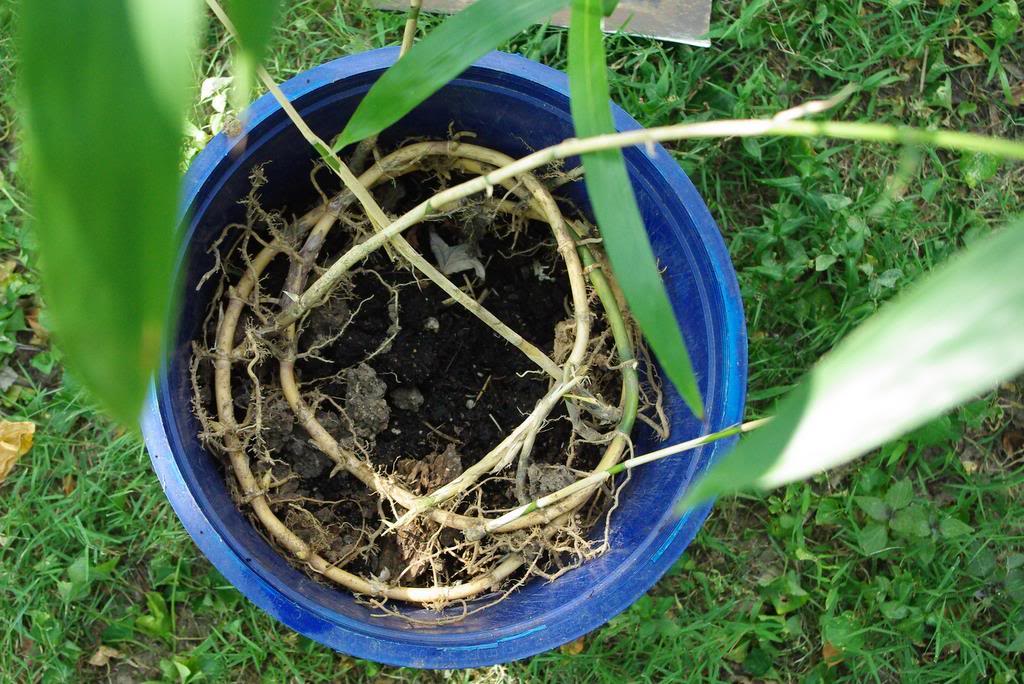



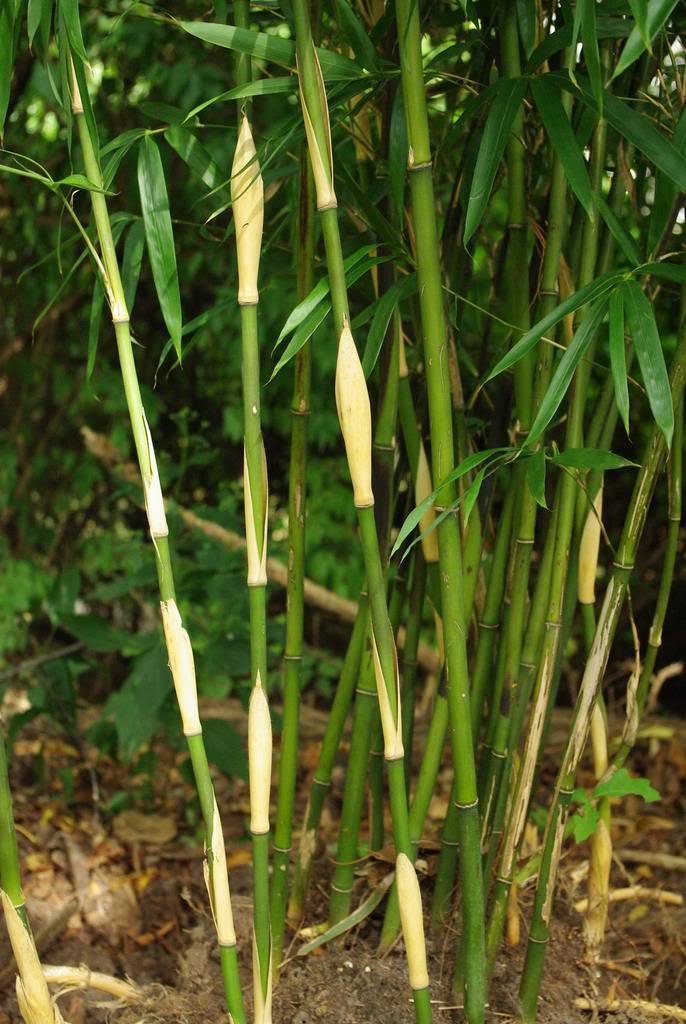


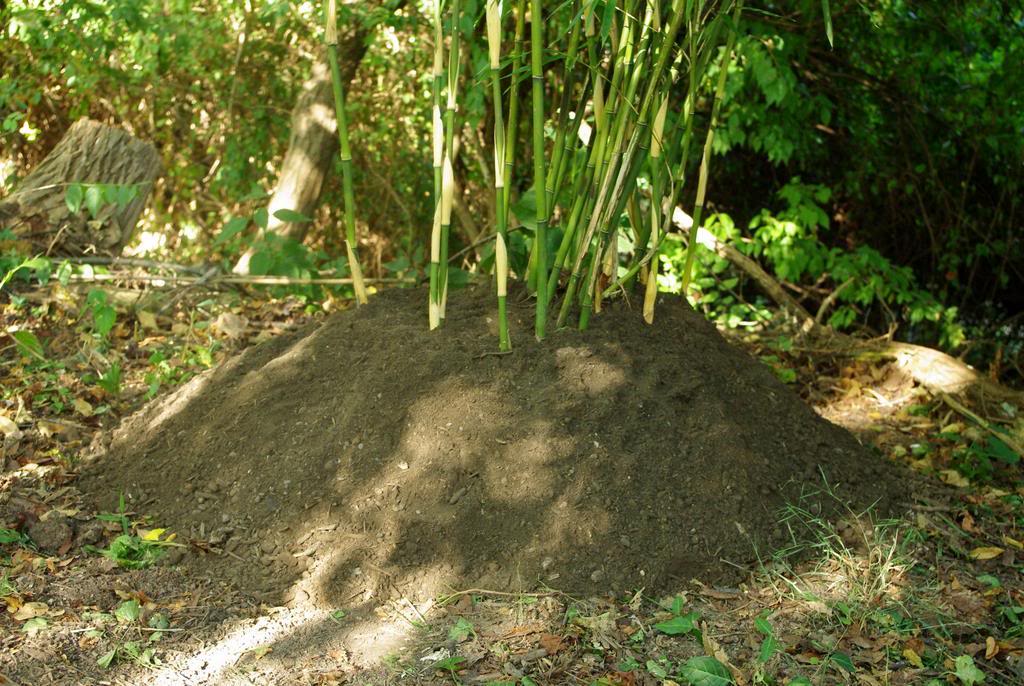
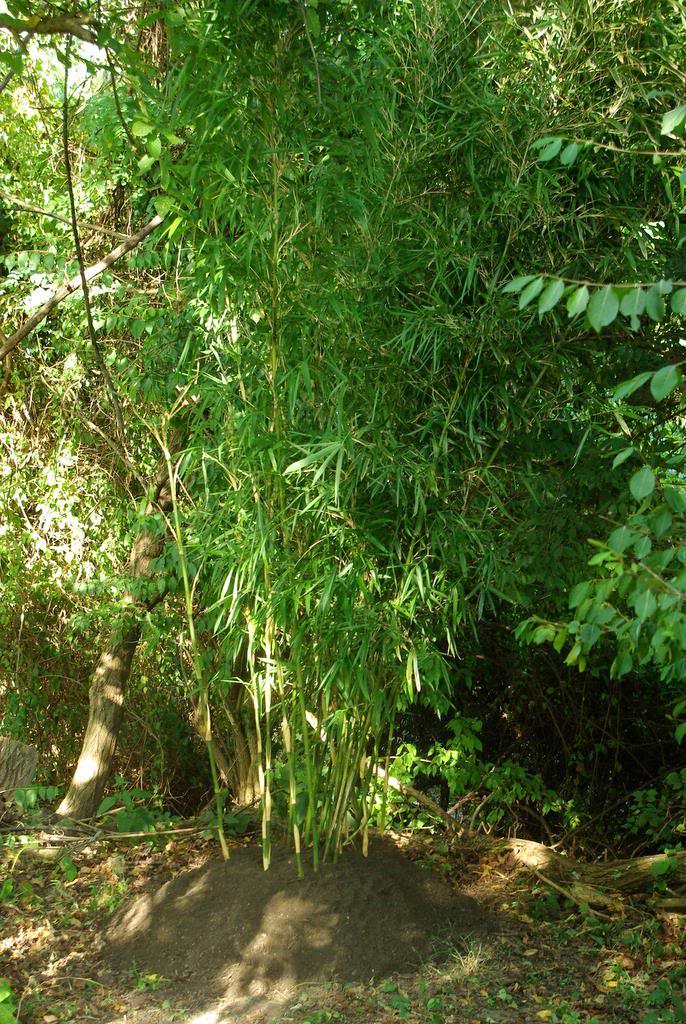
Sorry to hear about your plant. I hope it recovers soonest.
ReplyDeleteWhat a beautiful specimen! I think it's neat that you're growing native bamboo in your garden. I hope it'll recover quickly, esp. if you get some rain soon.
ReplyDeleteThe heat must really be a problem down in the midwest during the summer. None of my in-ground bamboos suffered even with a drought lasting nearly 2 months here just because it doesn't get hot enough to dry out the soil completely. It did even break 90F a couple times this summer.
ReplyDeleteMy garden is pretty devastated in this Midwest drought. It will need renovation, but I don't know when. Good luck with your giant cane! The giant cane in southern MO is the only habitat for Swainson's Warbler--a rare bird.
ReplyDelete